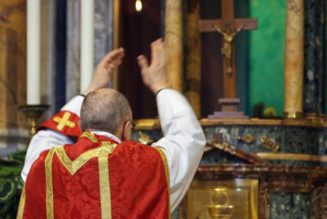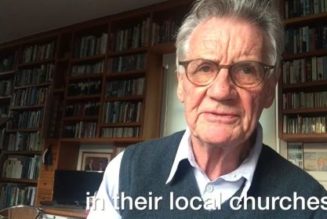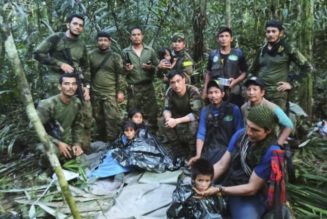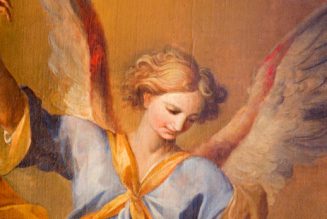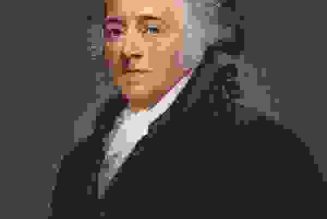
COMMENTARY: A Catholic campus should offer truth scientifically, psychologically, sociologically and theologically.
Janet E. Smith
Jesuit Father James Martin, in his address to the Association of Catholic Colleges and Universities, made a number of proposals about how Catholic campuses should care for “LGBT people” and begins by telling the story of the experiences on a Catholic campus of a young Muslim woman who identifies as lesbian. Father Martin built on that experience to lobby for “accepting everyone for who they are” and for establishing “LGBT” support centers on campus.
Father Martin’s approach sells short both the Church and young people. Here, I will sketch out a different possible scenario on a Catholic campus.
Hussein, a Muslim, enrolled at a Catholic college because it had a strong pre-med program. At the invitation of one of his classmates, he attended some events at the campus ministry center, where the priest and staff were welcoming and willing to engage the students in discussing any issues that came up. They drew upon a remarkable set of coherent principles in reference to the assessment of any issue — rights of immigrants, homosexual marriages, even the beliefs of other religions.
As appealing as the atmosphere was at the center and as accepted as Hussein felt there, being at college could still be lonely. He often felt left out because some of the guys in his dorm were so focused on girls — “This one is hot; that one is hotter.” Disturbingly, he found he wished they were talking about him — but not in a homosexual way. Indeed, he had for some time thought that he was meant to be a female — that he had been born in the wrong body.
In order to escape the dorm atmosphere for a while and his own troubling thoughts, he took the daring step of signing up for a weekend retreat sponsored by the center.
At the retreat, Father Jones, the head of campus ministry, spoke about how love for one another makes us want to serve the other — to do what is good for them even at a great sacrifice to ourselves. He explained that Christ laid down his life for others because he loved them.
During the first meditation, Father Jones asked the students to think of scenarios where one person might die for another — saving another by pushing him out of the way of an onrushing car and then being hit and killed. Of course, the example of soldiers was mentioned — men who at a young age risk their lives in battle for others. Christ did more than that: He died so that others might have eternal life, even those who were his enemies. Hussein was startled by the thought that a God-made-man (a concept hard to comprehend in itself) would die for him.
Father Jones also spoke of sin as a rejection of God, the loving Father who created the whole universe for us. Sinners prefer to satisfy their own desires rather than to act in a way that conveyed gratitude to God for all he has done for us. After this presentation, attendees were asked to meditate on the Gospel story of the rich young man who came to learn about eternal life from Christ but went away sad because, although he had followed all the commandments, he could not “follow Christ.”
Father Jones asked the retreatants if they could, as the young man did, report that they follow all the commandments. They guffawed. When asked to identify the kinds of sins to which college students are especially prone, the students listed sex outside of marriage, cheating at tests, blasphemy, abortion, masturbation, lying to their parents and use of pornography. (Hussein was a bit envious that the Catholics were able to go to confession and be “cleansed” of their sins.)
Hussein was particularly intrigued by Father Jones’ assurances that temptation to sin was not in itself a sin nor a sign that the person experiencing the temptation was a “horrible person.” Temptation was simply a normal part of life and our tendency to succumb to temptation was a part of the human condition, explained by “The Fall.”
Father Jones also explained that some of our difficulties are the result of various experiences that make us prone to various temptations. Rejection by one’s parent or parents can lead some young people to so crave love that they mistake sex for love; that having been sexually abused can contribute to some people experiencing same-sex attraction; that observing vicious behavior by members of one’s own sex might lead one to desire not to be a member of that sex.
Father Jones made it clear that the reasons for one’s proclivity to certain temptations are complicated and diverse and noted that culpability can be a hard thing to assign when there are such factors involved.
The retreatants were warned that although they may have experienced spiritual “highs” during the retreat, they could suffer “crashes” afterward when they return to the challenges of life.
It happened to Hussein; a terrible emptiness overwhelmed him when he got back to his dorm.
Hussein sunk into despair, and, a few weeks later, he attempted suicide. When Father Jones visited him in the hospital, Hussein was flooded with some of the positive emotions he experienced at the retreat. Father Jones assured Hussein of the great love that God has for him and told him of the number of people praying for him. Eventually, Hussein disclosed to Father Jones his gender dysphoria.
Father Jones expressed profound sympathy that Hussein was carrying such a great burden and assured him that God loved him and would help him. Father Jones and other members of the campus ministry team visited Hussein daily until he was discharged and then set up regularly scheduled meetings with him to discuss his struggles and to pray with him — something Hussein showed an eagerness to do.
Father Jones also put Hussein in contact with a Catholic psychologist who had counseled individuals suffering from gender dysphoria. The psychologist did not focus so much on his gender dysphoria as on other underlying issues, related to his dysfunctional family life. Nonetheless, Hussein decided to do some research on gender dysphoria. He learned that most of those who experience gender dysphoria as children generally outgrow it and found it telling that there are little to no mental-health benefits from “transitioning” and that the suicide rate is just as high 10 years after transitioning as it was before.
Hussein read about how clinics hastily counseled people to transition and about how some people greatly regretted have undergone transition and how they could never be fully restored to their biological sex.
An article wherein the first person identifying as “nonbinary” (not exclusively male or female) in the United States expressed his regret for his choices really unsettled Hussein. He began to think those who claimed that there simply was no scientific evidence that indicated that transitioning was an effective response to gender dysphoria were right.
One of the best reviews that Hussein found of the whole question of “transgenderism” was the guide written by Bishop Thomas Paprocki of Springfield, Illinois, both for what it said and for the resources supplied. Hussein realized parents were right not to want their daughters to share fitting rooms, restrooms and locker rooms with transgender females, since not all such individuals undergo full transition and also because vicious men could pretend to be transgendered females for the purpose of molesting biological females.
He found the Catholic position on sexuality as stated in the Catechism to be worthy of much consideration:
“Everyone, man and woman, should acknowledge and accept his sexual identity. Physical, moral and spiritual difference and complementarity are oriented toward the goods of marriage and the flourishing of family life. The harmony of the couple and of society depends in part on the way in which the complementarity, needs and mutual support between the sexes are lived out” (2335).
After associating with Catholics for several semesters, Hussein found those claims simple and clear — the two sexes existed to build families and to support each other. Hussein realized that he had never appreciated what it “means” to be a male and how his maleness was a given that he should embrace and grow into. He volunteered to work with Habitat for Humanity and found he easily fit in with the other guys. He even enjoyed the hard physical labor. He loved the idea of providing housing for the needy, especially single women raising children on their own. Perhaps he was more manly than he thought!
Hussein joined a study and prayer group made up of Catholics and non-Catholics who were seeking to understand the Catholic faith. Hussein joined them for many social events and was never without an invitation to any holiday celebrations. Hussein profited from his interaction with the staff and students at campus ministry and enjoyed it when he challenged their beliefs. He was a delightful person in so many ways — everyone looked forward to outings he arranged, attendance at hockey games or trips to the art museum.
Again, campus ministry helped Hussein in innumerable ways. Father Jones sometimes addressed everyone as “fellow sinners” and would insist that only sinners were welcome in the Church, although at times he also addressed them as “saints in the making.” As he talked to young men and women considering entering religious life, Hussein saw that he was foolish to think that having sex is the key to happiness — rather, the key was to live a life of selfless service.
He also met several Catholics who found their desire for same-sex relationships as compelling as his desire to transition who had developed a strong spiritual life through daily adoration, Mass, Rosary, spiritual direction and apostolic activity (such as working at a soup kitchen, visiting the elderly or tutoring disadvantaged youngsters). They found they were able to remain chaste and were experiencing a peace and joy and self-respect they did not believe possible. Hussein craved the same and began to feel it might be possible.
From a philosophy class, Hussein learned that Catholic anthropology maintained that God had bestowed great dignity on the human person that no sin or malady could diminish. He loved the Catholic claim that the infinite value of the human person could be established both philosophically and theologically; discovering the thought of Aristotle and Aquinas led him to understand that ideas should be rooted in reality, not in one’s desires or pathologies. As he took more philosophy and theology classes, he discovered that they helped in his own self-understanding as much as his counseling sessions did.
Hussein found the visit of several experts to campus absolutely eye-opening. Walter Heyer gave an incredibly moving and well-informed talk about his own experience with transitioning to a female and then transitioning back.
The talk given by Dr. Patrick Lappert, a plastic surgeon and a deacon, was a very logical presentation about using surgery to mutilate a person’s biological sex and replace it with a very unsatisfactory modification of that sex; it struck him as a talk that would destroy anyone’s enthusiasm for sex-reassignment surgery.
Mary Hasson persuasively demonstrated that the transgender movement was having a deleterious effect on the culture; he hadn’t thought of how the insistence that transgender females participate in girls’ and women’s sports was diminishing the hard-won achievements of biological females.
When Hussein heard that Father James Martin had visited a different college campus, he was appalled, for he found Father Martin’s message to be one that basically affirmed whatever one’s desires were and did not challenge people to discover the truth about the world and themselves. Had he heard that message some years earlier, he feared he would now be filled with confusion and regret and possibly living with the irreversible effect of bad decisions. Had Father Martin read any of the materials he had read on transgenderism?
Hussein began praying for Father Martin, for the young people he misled, and for those in authority who allowed him to spread his lies.
Although Hussein hadn’t expected that a Catholic university could offer him anything other than a pre-professional education, Hussein was grateful that he had had a chance to explore his desire to transition to being a female on a campus where there was no politically correct embrace of the complicated phenomenon of transgenderism. Rather, he found a true desire to assess this phenomenon from many different angles, scientifically, psychologically, sociologically and theologically.
Much to his surprise, because of good formation at campus ministry and through his classes, he challenged the immature guys in his dorm to take advantage of the wisdom available through their Church and on their campus. He was astonished that he had become a moral leader to Catholic guys on a Catholic campus. So this was what his philosophy professor meant by claiming that a commitment to seeking and living the truth would lead one to discover truths and live truths in ways one could never imagine!
Janet E. Smith, Ph.D., is a moral theologian.


